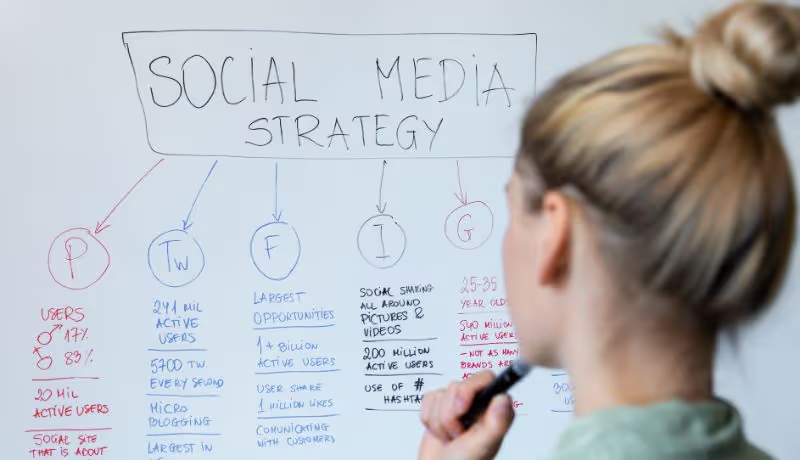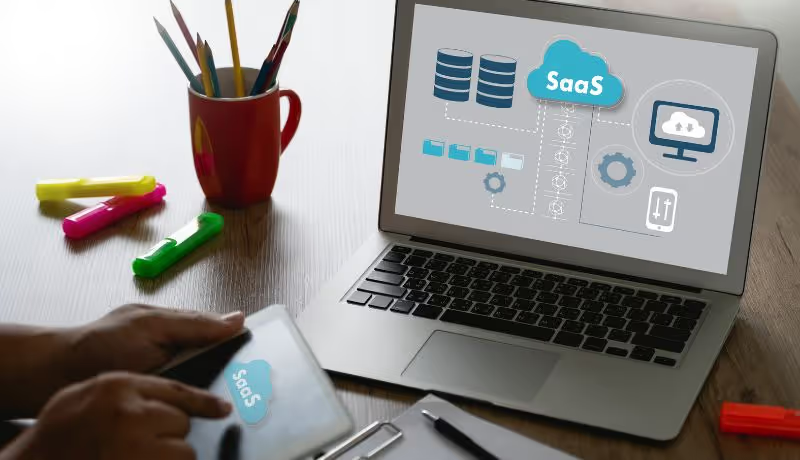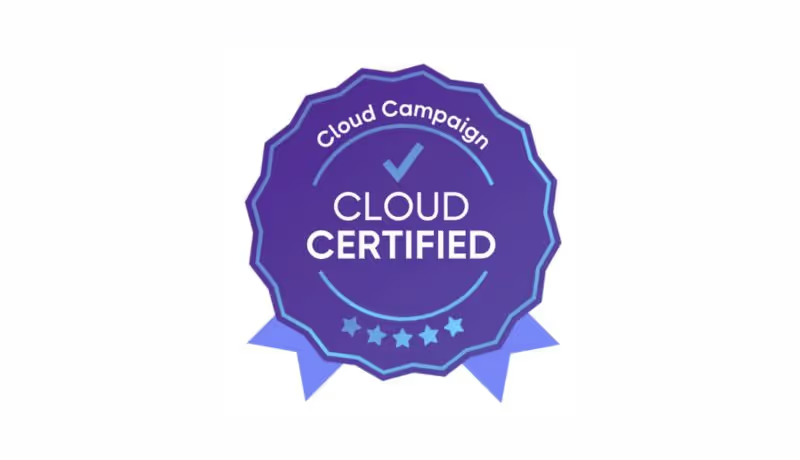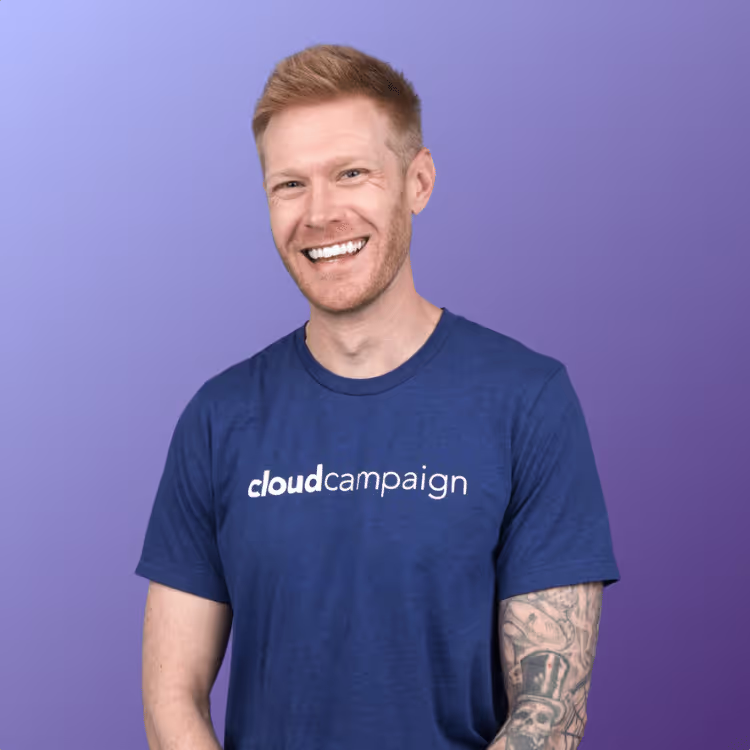3 Agency Operating Models You Haven't Heard Of
October 30, 2023
5 min read

CONTENTS

3 Agency Operating Models You Haven't Heard Of
One of the most exciting - and frustrating - aspects of running a marketing agency is there isn’t one clearly defined path to running a successful business.
Some agencies focus on a handful of high-paying clients, while others provide high-volume, low-cost services. And, of course, there are plenty of other agencies doing something completely different!
In this post, we’ll explore three agency operating models you might not have heard of before to help you expand your agency without adding extra resources or headcount to your team. Let’s dive in!
Don’t forget to check out our Agency Resources page for more helpful agency tools and resources.
The Client Enablement Agency Model

The client enablement business model allows agencies to generate revenue by helping their clients become more successful on social media.
This is usually done by white-labeling Cloud Campaign as your own platform and charging your clients for access to the platform and/or other services.
With this highly-scalable model, you can charge your clients for these services on a monthly, quarterly, or annual basis. You can maximize the number of clients you can serve using this approach because you’re not involved the the client’s day-to-day operations.
This is done by offering a subscription service that gives clients access to various resources and services, such as training courses, templates, and on-demand support.
The client enablement business model benefits both marketing agencies and their clients. Agencies generate recurring revenue by providing their clients with valuable services that help them grow their businesses, while clients benefit from the expertise and resources of the marketing agency so they can focus on their core business competencies.
Here are some examples of the client enablement model in action to get you started!
Training & Education

Agencies using the enablement model provide their clients with training on how to use marketing tools and platforms, develop and execute marketing strategies, and measure and analyze the results of their marketing campaigns. This is typically done with pre-made content that is part of an automated onboarding process.
Content Creation

Agencies can also help their clients create high-quality content that is relevant to their target audience and optimized for search engines by providing self-serve guides and templates. Clients can also be guided through Cloud Campaign’s robust content creation features to create posts themselves.
Marketing Campaign Execution

Another way this model can empower clients is by helping them learn how to plan, execute, and manage marketing campaigns across a variety of channels, such as social media, email, and paid advertising. Once again, automation and pre-created training and templates are key to scaling this model.
Marketing Analytics & Reporting
Using this model, you can also help your clients learn how to track and analyze the results of their marketing campaigns so that they can identify what is working and what is not. Check out our post about workspaces to see how clients can access their dashboards.
The DIY SaaS Agency Model

The do-it-yourself-software-as-a-service, aka DIY SaaS, business model is a way for agencies to generate revenue by reselling or white-labeling existing software products as their own.
This might look similar to the Client Enablement model, and the differences between are a bit nuanced. Where Client Enablement is focused on empowering the client, DIY SaaS is almost fully hands-off and infinitely scalable.
This can be done by finding a SaaS product that is relevant to their target clients and then re-branding it with their own logo, messaging, and value-add such as access to specialized training or resources. Click here to learn more about value-added services in the DIY SaaS Agency business model.
The agency can then sell access to this tailored package to their clients. This is particularly effective when paired with a channel sales and marketing strategy.
The DIY SaaS business model has some attractive advantages for agencies wanting to scale their business.
First, it allows them to offer their clients a more comprehensive range of services without developing their own software products or offering direct services, like the aforementioned Client Enablement Agency Model.
Second, it can be a profitable business model, as marketing agencies can generate scalable recurring revenue from their clients' monthly subscriptions and any referrals they bring in. Click here to learn more about our robust Affiliate Program.
How to Implement a DIY SaaS Model

The best way to implement the DIY SaaS business model is to start by identifying the needs of your target clients.
Once you understand the needs of your clients, you can align and brand your SaaS products to meet their needs. You should also make sure to offer your clients a high level of support to get the most out of the SaaS products they are using. This can be achieved through automated onboarding and other pre-made support materials.
Once you’ve created a strong offering and support package, promote your DIY SaaS services to your target clients through your website, social media, and email marketing campaigns. Don’t forget to monitor your conversion rates to help you optimize your efforts.
The DIY SaaS business model can be a very lucrative way for agencies to generate scalable revenue. By reselling or white-labeling existing software products, marketing agencies can offer their clients a more comprehensive range of services and generate recurring revenue from their clients' monthly subscriptions.
Click here to learn more about how to use white-label SaaS to scale your agency.
Franchise/Verticalization

A verticalized marketing agency business model is one in which the agency specializes in serving a specific industry or market.
This allows the agency to develop deep expertise in the unique needs and challenges of its clients and offer a more comprehensive range of services than a general-service agency.
Agencies specializing in discrete industries leverage Cloud Campaign’s ability to copy content between workspaces to have a high-efficiency model where near-duplicate content can be posted between different clients or franchise locations.
Implementing this model successfully requires a solid understanding of the industry you’re targeting, which requires market research, strategizing, and testing - but the results can be quite lucrative!
Here are some of the main benefits of a verticalized marketing agency business model. This can also be combined with the Client Enablement Model to create a specialized self-service agency.
More Effective Marketing Campaigns

By specializing in a particular industry, verticalized agencies can develop a deep understanding of their client's target audiences, their competitive landscape, and the latest marketing trends and technologies. This allows them to create more effective and targeted marketing campaigns that deliver better results.
Deeper Client Relationships

Verticalized agencies often develop deeper relationships with their clients than general-service agencies. This is because they are more knowledgeable about the client's industry and specific needs, and they can provide more personalized and strategic advice.
Increased Credibility & Expertise

Verticalized agencies are seen as experts in their field, which gives them a credibility advantage when winning new clients over general-service agencies. This can lead to higher client retention and cross-selling opportunities. It also allows you to show demonstrable results with your services, which you can turn into case studies to show your effectiveness.
Improved Operational Efficiencies

By specializing in a particular industry, verticalized agencies can streamline their operations and processes. This can lead to lower operational and customer acquisition costs and improved profitability across various tasks, including social media management.
Conclusion
As you can see, the verticalized marketing agency business model offers a number of advantages for both agencies and their clients.
By specializing in a particular industry, agencies can deliver more effective marketing campaigns, build deeper relationships with clients, and increase their credibility and expertise.
For clients, this means working with an agency that has a deep understanding of their business and can help them achieve their marketing goals.
Cloud Certification

Did you know that our Customer Success team works with thousands of agencies and can help you get started in these agency models using Cloud Campaign?
In our FREE Cloud Certification process, we help you build Cloud Campaign around your business - not the other way around - while training you and your team on platform best practices. Click here to learn more about Cloud Certification.
If you’re not already using Cloud Campaign, hop on a free two-week trial to see how our platform can transform how you manage social media!
.png)



